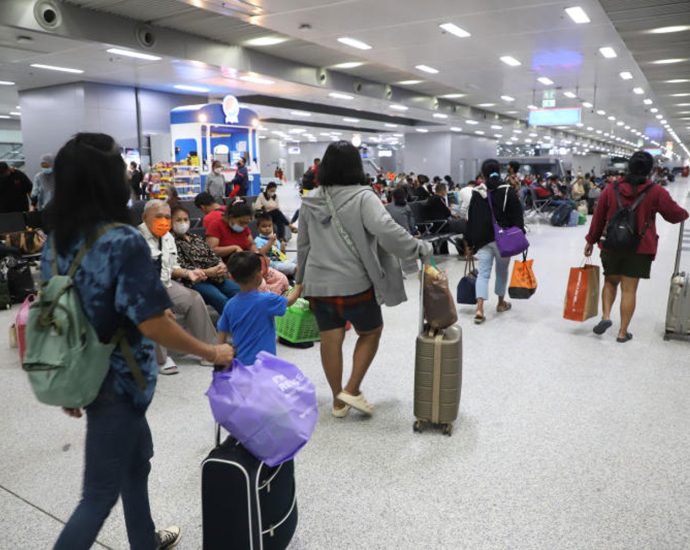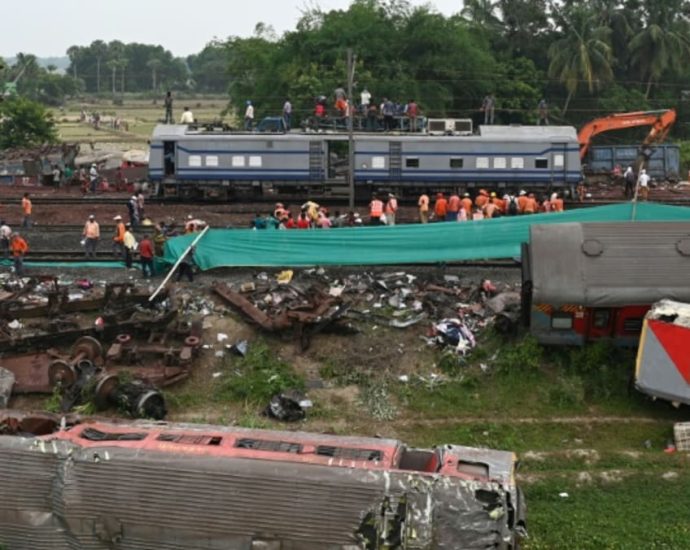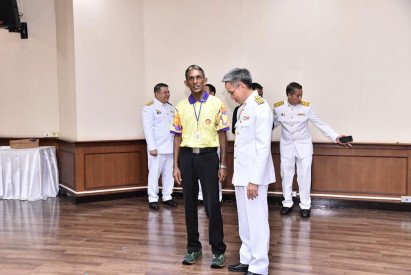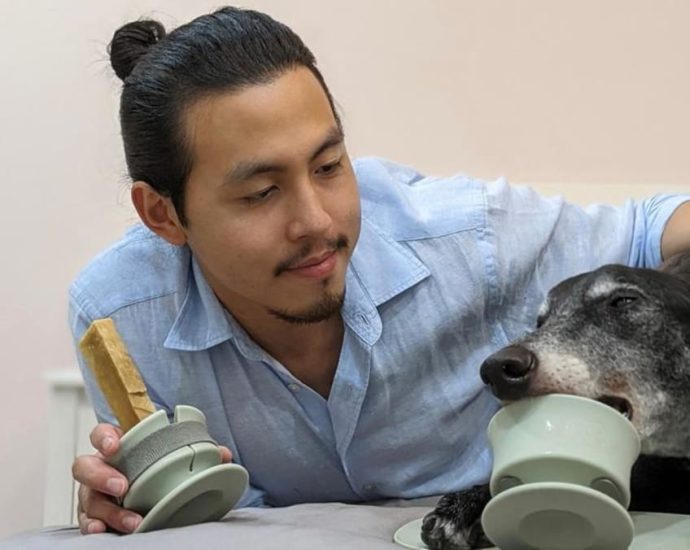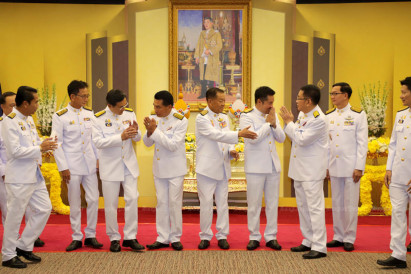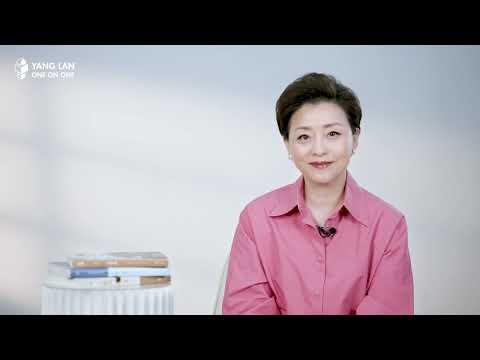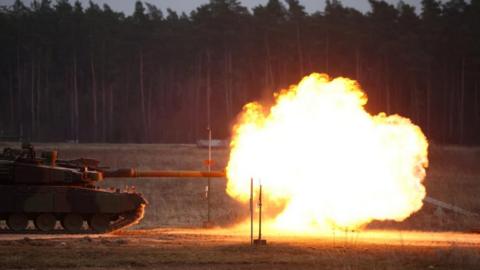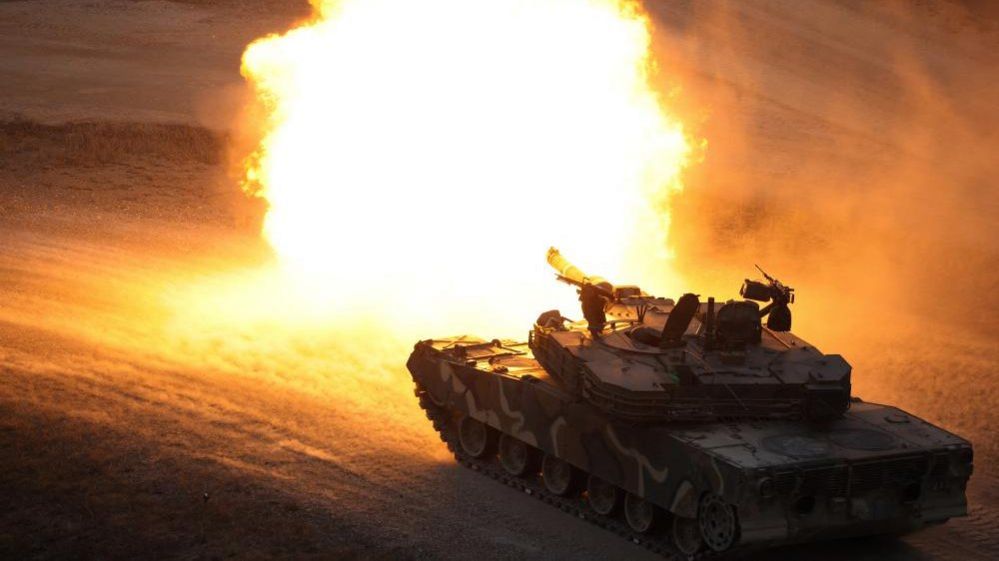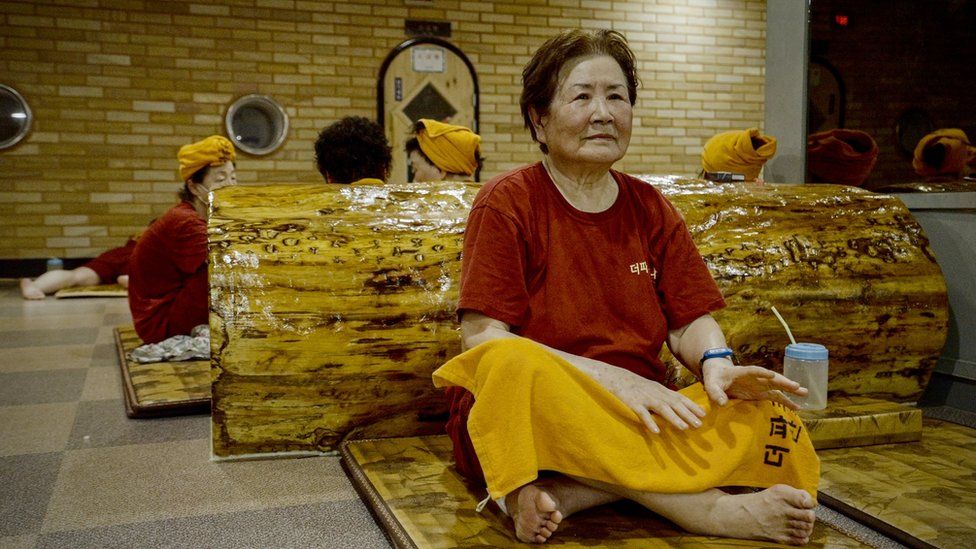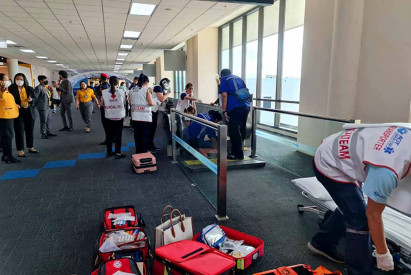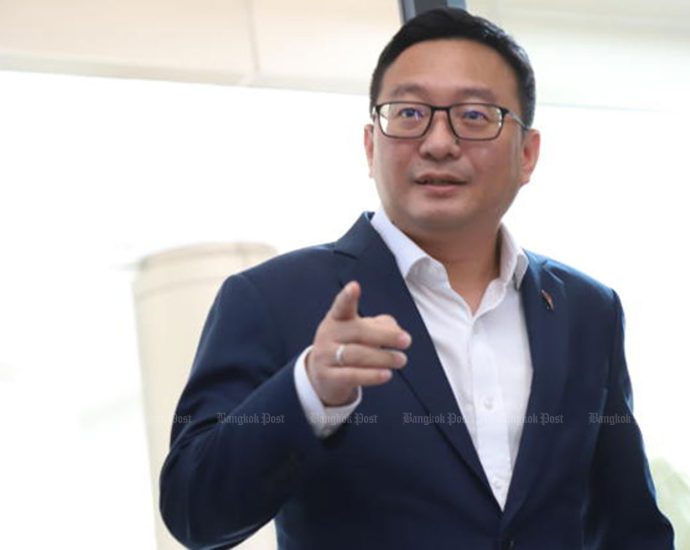US firms snub ‘de-risking’ to give China another shot â but theyâre finding a new obstacle
“It could not have been a warmer reception than what we received,” said American businessman Jeff Bowman after spending a week in China last month. Bowman is the CEO of the US materials science company Cocona, with his unique sweat-drying Masterbatch additive for yarn garnering significant interest in the China-basedContinue Reading
Central terminal courts single bidder

Only one company has bid for the commercial development of Krung Thep Aphiwat Central Terminal despite three firms having purchased invitations to tender, the State Railway of Thailand (SRT) announced on Friday.
Ekkarat Sriarayanpong, head of the SRT governor’s office, said the SRT had four projects that recently opened for bidding. First was the commercial use project the SRT expects to have a private company develop, covering 47,675 square metres at the central terminal.
Three companies procured invitations to tender: Central Pattana, King Power Suvarnabhumi and Prem Group Engineering. However, only Prem Group Engineering ended up bidding, Mr Ekkarat said.
The second project is managing a 2,303m² advertising space at the central grand station. Plan B Media and King Power International purchased invitations to tender, but neither has bid for the project, he added.
The third project is to develop a 3,759m² space at 12 stations on the Red Line electric commuter train service, which connects the central station to the Rangsit area in Pathum Thani. No one purchased an invitation to bid, Mr Ekkarat said.
The fourth project is to manage 2,080m² of advertising space at the 12 Red Line stations. Plan B Media and King Power International also bought invitations to tender but elected not to proceed.
Mr Ekkarat said after the deadlines to submit the bidding proposals for all four projects ended in the middle of this week, only one company — Prem Group Engineering — bid for the first project.
The SRT will review the company qualifications and will announce the result next Thursday, he said.
The SRT will then check its technical proposal on Aug 15 and open the bid proposal on Aug 16 the following day.
As for the remaining three projects for which the SRT has yet to find bidders, its selection committee will conclude a report for the next board meeting to find solutions, he said.

Krung Thep Aphiwat Central Terminal, formerly known as Bang Sue Grand Station, in Chatuchak district, Bangkok. (Photo: Nutthawat Wichieanbut)
Three railway workers arrested over India’s deadly train crash
Relatives spent days combing through possessions and looking at post-mortem pictures of those killed in the crash, to identify their loved ones. At least 850 others were injured in the collision. Days after the accident, India’s railway minister Ashwini Vaishnaw said the crash was the result of an issue withContinue Reading
Sri Lankan mahout honoured by royals

Their Majesties the King and Queen presented a gift to a Sri Lankan mahout who took care of the ailing Thai elephant Sak Surin, now in 30-day quarantine in Lampang province, after being flown from Sri Lanka on July 2.
Air Marshal Pakdee Saengchuto, deputy private secretary to the King, represented the monarch on Thursday to provide the gift to Don Upul Jayarathna Denelpitiyage, the mahout from Dehiwala Zoo in Sri Lanka, according to the Ministry of Natural Resources and Environment’s Facebook page on Friday.
The ceremony was held at the ministry, with permanent secretary Jatuporn Buruspat and Mr Denelpitiyage attending.
Mr Denelpitiyage accompanied an official Thai team to fly from Sri Lanka to Thailand to help care for Sak Surin, who is now being looked after at the Thai Elephant Conservation Centre. Mr Denelpitiyage returned to Sri Lanka on Friday.
The ministry spent about 19 million baht caring for 30-year-old Sak Surin and bringing him back to Thailand for medical treatment.
He is one of three elephants Thailand sent to Sri Lanka to strengthen diplomatic relations following a Sri Lankan request for the Thai government to send elephants to carry the Lord Buddha’s relics in special religious ceremonies.
Meanwhile, the Thai ambassador to Sri Lanka on Friday said Pratu Pha, another 49-year-old male elephant, has been living under normal conditions in the island nation, adding that there are no plans to bring him back to Thailand.
Ambassador Poj Harnpol said he visited Pratu Pha at Wat Sri Dala Maligawa (Temple of the Tooth Relic) in Kandy City where the elephant is kept, on Thursday. The visit was made at the invitation of Pradeep Nilanga Dela Nilame, the temple caretaker.
Mr Poj said Pratu Pha lives in an open courtyard — with a concrete and soil surface — marked by ropes to indicate boundaries.
The elephant’s front legs are chained to two big trees, while one of the hind legs is lightly chained, allowing it to move and stand naturally.
Pratu Pha can consume food such as leaves from kithul trees, grass and sugar cane as normal, said the ambassador.
During his 30 minutes of observation, the elephant did not display any signs of aggression, and a mahout could feed the animal from a distance.
Mr Poj emphasised the importance of improving the landscape and ensuring adequate water sources and water tanks for the elephant’s well-being.
“Although the general condition is satisfactory to some extent, Pratu Pha’s living conditions could still be improved,” the envoy said.
“We acknowledge the efforts being made by the temple, and the situation cannot be changed in a day. We will work towards better care,” he said.
In an interview with Sri Lankan media, Mr Poj said Thailand has no plans to return Pratu Pha, who is also known as Thai Raja.
Pratu Pha was gifted to Sri Lanka 37 years ago, while Sak Surin and another male jumbo, Sri Narong, were sent there 22 years ago as goodwill gifts.
Why Lunoji founder Adrian Lim took a 75% pay cut to design pet products
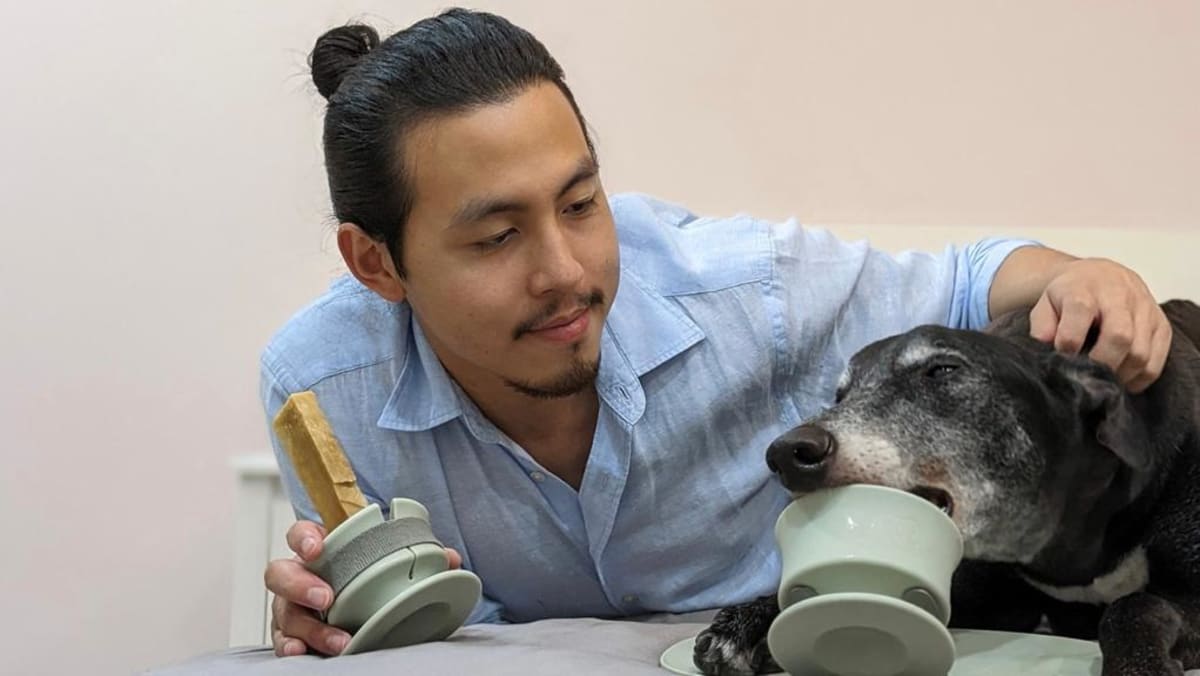
From a one-man operation, Lunoji has now expanded to a team of four, including two designers and one marketing person. His mother, who is currently clear of cancer, also helps part-time, making treats and blends, and fulfilling orders.
“The biggest issue we had, and still have, is funding,” said Lim, who currently pays himself a modest salary of S$2,500 a month to channel more money into the business.
“When I walk past places like Tori-Q where the salary of full-time staff starts from around S$2,800, I sometimes question myself. Am I stupid for doing this? Because I could be earning close to S$10,000 with my previous job. There is a lot of sacrifice,” he admitted.
But he has no regrets embarking on this journey, which has also helped in his recovery from depression – Lim was able to go off medication last year.
“To say, I thought of an idea and now we’ve got thousands of them all around the world is priceless.
“With this business, I can really see the impact of what I do on people’s and animals’ lives. One of the little things I like to do is just lie on my bed and watch the Instagram stories and posts that people tagged us on. My bank account is empty but my heart is full,” he said.
Reprieve for the old guard?

The election of Wan Muhamad Noor Matha, former leader of the Prachachat Party, as House speaker this week may have seen the Pheu Thai Party’s chances of ushering in a new, younger beginning slip through its fingers.
Despite the May 14 election now long gone, some senior members of the second-largest party may be finding it hard to sleep at night.
They have every reason to feel anxious, especially after a spectacularly poor showing at the polls, which is something the party cannot afford to ignore, according to an observer.
In fact, it has been reported that a major shake-up is on the way in Pheu Thai, which is looking to rebrand itself and hopefully “young” itself up in the process.
The election result, which handed the party 141 seats, was a nasty wake-up call for Pheu Thai, which found itself relegated from being the biggest party in the 2019 poll to first runner-up this time.
Pheu Thai, still grappling with the humiliation of the electoral defeat, is not about to place an elephant in the room by overlooking the critical mistakes it made, which saw the party fall way short of its target of scoring a landslide win with 300-plus seats.
The observer said it would not be unrealistic to expect that some party heads will roll, and that will likely happen before cabinet appointments are decided.
The election defeat might also bring an opportunity as it allows for the party to be overhauled, especially in the strategy area and top executives associated with running Pheu Thai.

Paetongtarn: Viewed as ‘agent of change’
Change can already be seen with the installation of Paetongtarn “Ung Ing” Shinawatra, the youngest daughter of ousted premier Thaksin Shinawatra, as head of the Pheu Thai Family, a post unprecedented in the party’s history and which is thought to be on par with the party leadership.
Thaksin has consistently shrugged off accusations he is Pheu Thai’s de facto leader.
Ms Paetongtarn’s rise has unnerved some of the party old guard. It came at a time when the Move Forward Party (MFP) was fast gaining ground ahead of the election as it attracted young voters — the MFP’s main support base — while also expanding its influence over the politically-active, working-age population.
The rapid surge in popularity propelled the MFP to victory, making it the biggest party with 151 MPs.
Watching the MFP overtake it in the election, Pheu Thai may be tempted to emulate the MFP’s poll success and walk a similar path. But before it can do that, Pheu Thai would need to replace some stalwarts in charge of directing the party, according to the observer.
The business of placing new and younger blood on the party’s executive board to implement a transformation plan may be left until after the formation of the new government.
However, the observer reckoned an early start to an internal shake-up could be visible sooner rather than later.
Election Commission certification of MPs preluded the selection of a House speaker, which took place on Tuesday, much sooner than originally planned.
The tussle for speaker had boiled down to three candidates — Mr Wan, the MFP MP for Phitsanulok, Padipat Suntiphada, and Pheu Thai MP, Pichet Chuamuangphan.
Mr Wan was chosen with Mr Padipat his first deputy and Mr Pichet his second.
Prior to the speaker election, Pheu Thai said the MFP should make a concession since its leader Pita Limjaroenrat is in the running for prime minister with the full support of Pheu Thai.
Initially, Pheu Thai leader Dr Cholnan Srikaew was heavily tipped to be the speaker. If he had been elected, he would have had to have stepped down as Pheu Thai leader, necessitating a reshuffle of the party executive board.
With Mr Wan as House speaker, which has averted a showdown between Pheu Thai and the MFP, Pheu Thai may have missed the opportunity for an internal overhaul and bring younger executives in to run its affairs.
A source close to the matter said Ms Paetongtarn is being viewed as an agent of change who is well-positioned to modernise Pheu Thai with the blessing of her father, who is a highly respected figure in Pheu Thai.
Pheu Thai realises it must shape up. An infusion of new-generation executives will be necessary for changes to be made so the party can compete against the MFP in future polls and emerge on top.
In the meantime, an overhaul could provide the opportunity to sideline some party heavyweights who underperformed in the recent election.
Looking at alternatives
Now that the Move Forward Party (MFP) and Pheu Thai have settled their House speaker dispute, the stage is set for the selection of the country’s next leader.
Newly elected House speaker, Wan Muhamad Noor Matha, has set July 13 for the crucial vote, and despite the MFP-led prospective coalition’s pledge to back MFP leader Pita Limjaroenrat for the post, it remains far from certain who will get the job.

Pita: Uncertain over Senate backing
Under the constitution, a candidate needs the support of at least half of the 750 members of the House of Representatives and the Senate, or 376 lawmakers in total, to become prime minister.
The coalition commands 312 House seats and needs another 64 votes from outside the bloc or the Senate to get Mr Pita elected.
It is not known how many other MPs and senators are prepared to back him due to the MFP’s controversial policies.
Analysts seem to agree that the prime minister vote will not be quick and multiple rounds of voting may be needed.
However, Mr Wan, who resigned as leader of the Prachachat Party after being elected unopposed on Tuesday, has indicated that although there is no limit to how many times parliament can meet to elect the prime minister, he is unlikely to let the issue drag on.
According to him, if Mr Pita fails to secure the 376 votes he needs in the first round, the MFP leader can expect one or two more chances before “Plan B” must be seriously explored. A constitutionally recognised and well-accepted option would be to hand the second biggest party, Pheu Thai, the right to lead the government’s formation.
“The House speaker cannot afford to persist [in calling further rounds of voting] because members of parliament may not want to attend, and a lack of quorum would ensue.
“Most importantly, the eight parties [trying to form a coalition] must sincerely show that they have tried their best [to support Mr Pita’s bid] so we can move on and work together,” Mr Wan said.
There are several ways this could play out if Mr Pita cannot secure approval after several attempts, according to observers.
The most likely is that Pheu Thai will seize the opportunity to put forward one of its three prime ministerial candidates — Paetongtarn Shinawatra, Srettha Thavisin and Chaikasem Nitisiri — for parliament to consider.
Mr Srettha, the property tycoon, is expected to get the nod if the opportunity presents itself.
The MFP, according to critics, has backed itself into a corner by proposing Mr Pita as the party’s sole candidate for prime minister, according to observers.
A highly placed Pheu Thai source said that there has been no word from the MFP or Mr Pita as to what they will do if Mr Pita cannot reach the 376-vote threshold.
“As much as the party wants to put Mr Srettha’s name forward, we must honour the deal [of supporting Mr Pita]. We know the senators aren’t fond of our candidates, but they are more acceptable than the MFP leader.
“If the MFP steps back after Mr Pita fails, we think we can win the required votes in parliament. But that will happen as long as the other bloc doesn’t nominate Palang Pracharath Party (PPRP) leader Gen Prawit Wongsuwon for the post,” said the source.
According to analysts, another possibility that cannot be ruled out is an attempt to form a minority coalition by the current government bloc, which has 188 members.
In this scenario, Gen Prawit would be nominated as the bloc’s prime ministerial candidate rather than Anutin Charnvirakul, leader of the Bhumjaithai Party, which is the third-largest party with 71 seats.
Gen Prawit has solid connections with the senators, and if he does step into the ring, the prime minister selection process will probably be over in a single round of voting.
According to the Pheu Thai source, the PPRP may be interested in forming a minority government because it can secretly poach MPs from the MFP-led bloc whenever hands need to be raised in parliament to pass important legislation and eventually become a functional government.
Initially, it is believed as many as 50 MPs from the MFP and Pheu Thai can be lured to cross the floor.
A minority government, if it happens, is expected to last at least eight months, during which period the budget expenditure bill for the 2024 fiscal year will be pushed through, according to the source.
The fiscal legislation is expected to be tabled for debate in September with a three-month scrutiny process. If the bill fails to clear the House, the House will be dissolved, paving the way for a snap election.
Yang Lan interviews Xie Zhenhua â One on One

[embedded content]
Chinese climate advisor Xie Zhenhua has been the lead negotiator for China at most United Nations climate change conferences since 2009. He led the Chinese delegation at the COP26 in November 2021. In an interview, Xie shares his view about why China is willing to take climate action and how the country will achieve its carbon neutrality goal.
Yang Lan, one of China’s top TV journalists and entrepreneurs, partners with Asia Times to showcase the ground-breaking series, “Yang Lan One on One.” Yang reveals the victories, wisdom and breakthroughs of the many global luminaries she’s interviewed. Learn how these trailblazers – from movie stars, scientists and economists, to entrepreneurs and government leaders – have ignited social progress throughout the world.
Asia Times is the distributor of the series.
Episode 1: Yang Lan interviews Michelle Yeoh – One on One
Episode 2: Yang Lan interviews Donnie Yen – One on One
Ukraine war: Pressure builds on South Korea to send arms to Kyiv
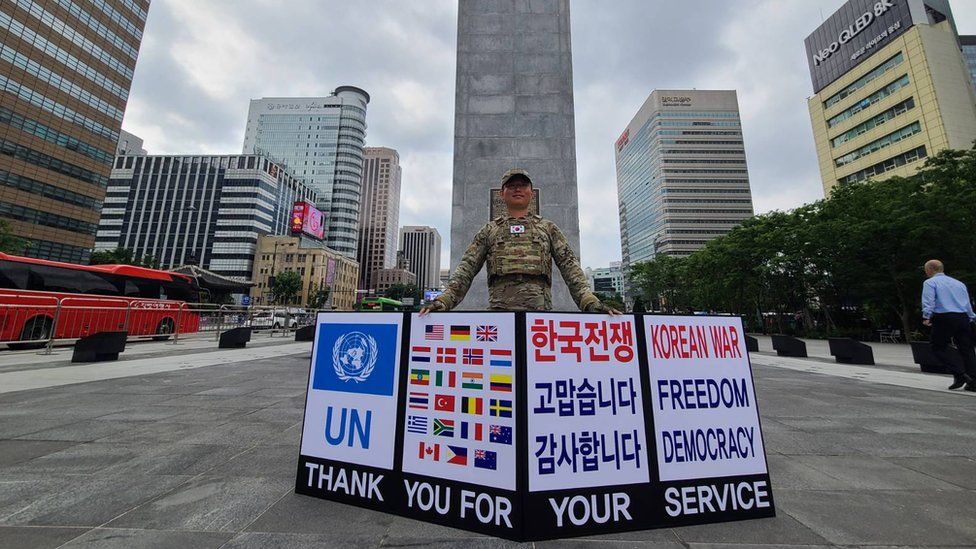
Sgt Kim Jae-kyung stands, unflinching, outside the Colombian embassy in Seoul, dressed in full military gear. The day before, he was in front of the Dutch embassy. The day before that, it was the Greek.
This one-man demonstration by the former special forces soldier is his way of showing gratitude to all 22 countries who sent troops or medics to support South Korea after it was invaded by its neighbour North Korea in 1950. Now he wants his country to help Ukraine, following its invasion by Russia in February 2022.
“We are lucky enough to now be the 10th most prosperous country in the world, because of the foreign soldiers who shed their blood and sweat for our country,” the 33-year-old says.
It is this rationale which led him to the battlefield in Ukraine, where he served on the front line for four months alongside the Ukrainian army, as an anti-drone gunner and combat medic for the 3rd Battalion of the International Legion.
Kim is one of just a handful of Koreans known to have defied his government’s orders, by heading to Ukraine to fight. As he entered the north-eastern city of Kharkiv, shortly after it was reclaimed from the Russians, he witnessed first-hand what he describes as “horrendous, evil, war crimes”.
This is why – in his mind – South Korea must now do more to help the Ukrainian war effort.
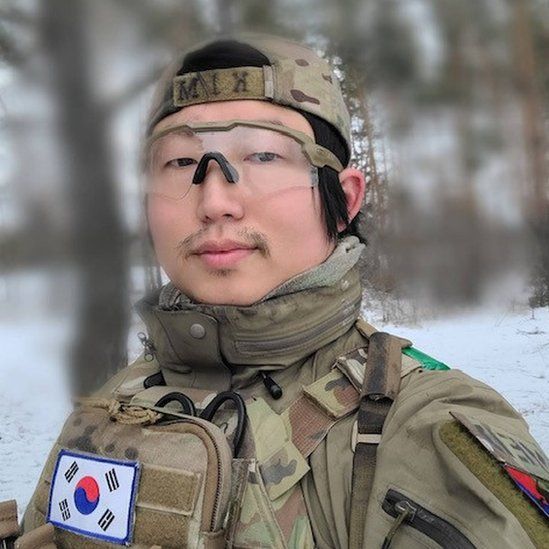

Weeks into its counter-offensive, Ukraine is burning through ammunition faster than its allies can produce it.
Meanwhile South Korea is cautiously sitting on one of the biggest stockpiles in the world. With its own conflict with the North still unresolved, it doesn’t know when it might need the bullets.
Not only this, but with its flourishing defence industry, it is turning out tanks and other weapons at a speed that countries in Europe can only dream of.
Ever since the start of the Ukraine war, pressure has been building on Seoul to send its arms to Kyiv, from the US, UK and EU member states. They have invited the South Korean President Yoon Suk Yeol to next week’s Nato summit in Vilnius.
Ukraine’s Ambassador to South Korea, Dmytro Ponomarenko, told me ahead of the summit that he believed South Korea’s weapons could “change the course of the war”.
Ukraine’s President Volodymyr Zelensky recently made a similar plea in the Korean press.
“Please remember that 70 years ago, Korea was in desperate need of help. The whole world reached out to Korea in defence of justice and freedom. Ukraine today is like Korea 70 years ago,” the leader said.
But, despite signing up to all international sanctions on Russia, and providing Ukraine with more than $200m of humanitarian aid, the government has drawn the line at sending lethal weapons.
Publicly politicians have been able to hide behind a long-standing policy of not arming countries in conflict, but privately many worry about antagonising Russia. Before the war, in 2021, the two countries conducted $27bn worth of annual trade. Seoul also hopes, somewhat wishfully, that Russia might be able to keep North Korea in check.
“The Russians have made it very clear to us that weapons are their red line, and that if we cross it, they will retaliate,” a South Korean diplomat told me recently.
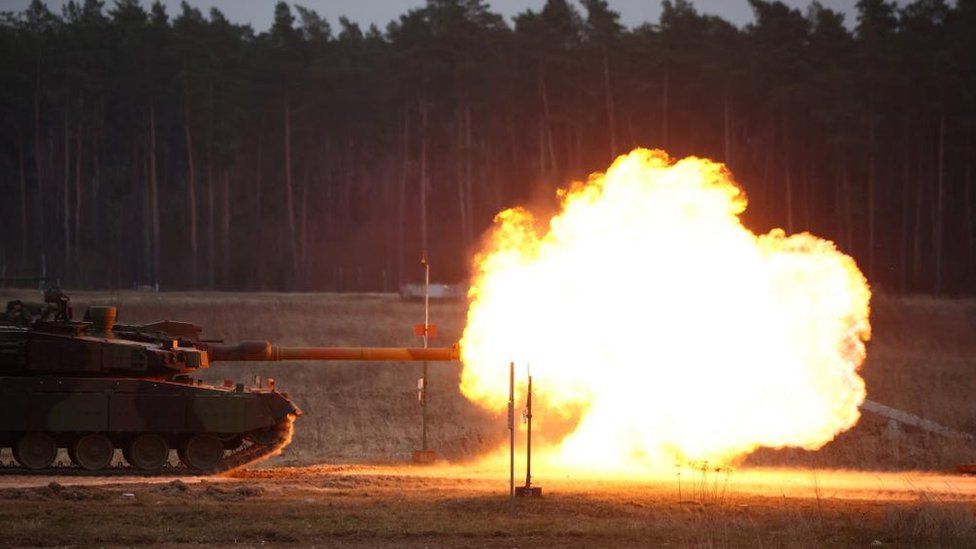
This retaliation may come in the form of economic sanctions, or, more concerningly for Seoul, support for North Korea’s leader, Kim Jong Un. The Russian politician and former president Dmitry Medvedev hinted in April that Moscow could supply Pyongyang with the latest technology for its nuclear weapons if Seoul were to support Ukraine militarily.
Instead, South Korea has taken the more comfortable approach of selling weapons to those who are already arming Ukraine, to help replenish their depleted stocks. Last year it sold $13.7bn worth of tanks, jets and other arms to Poland, followed this year by a huge haul of ammunition – more than 4 million rounds.
And after agonising over whether to provide the US with hundreds of thousands of Nato-standard 155mm shells, a private sale of the artillery has now been agreed. There is little to stop Poland and the US sending these weapons on to Ukraine. Indeed, there are reports (in Korean) that some of the ammunition is in the process of being transferred.
Ramon Pacheco Pardo, the Korea Chair at the Brussels School of Governance, believes Seoul is aware its shells are being redirected.
“It is difficult for the South Korean government to argue that the country’s lethal weapons are being used in Ukraine without its knowledge,” he said. Though the South Korean government is refusing to be drawn on the deals, citing “national security concerns”, and says its policy on weapons supply has not changed.
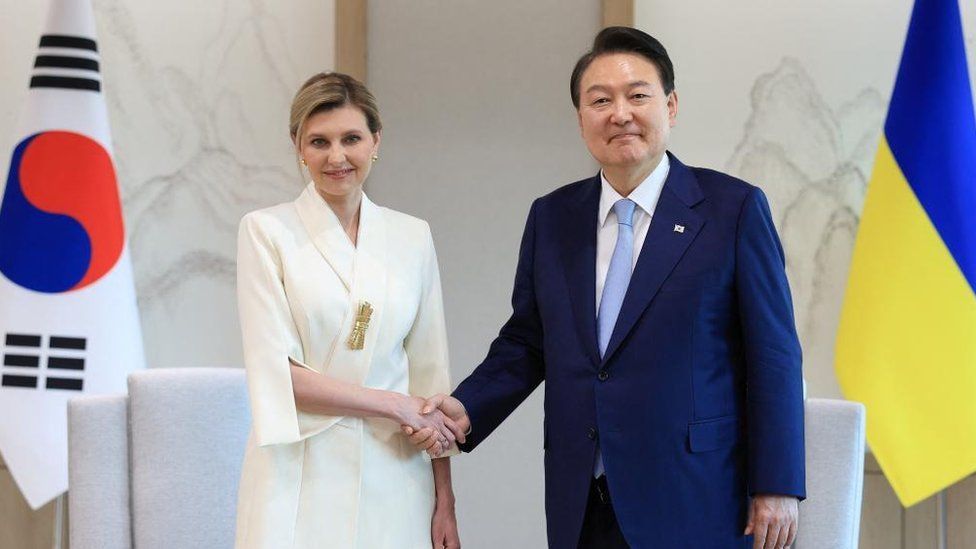
But when Ukraine’s First Lady Olena Zelenska visited Seoul in May, followed by EU chiefs Ursula von der Leyen and Charles Michel, lethal weapons were mysteriously absent from their list of requests. The feeling among Western diplomats in Seoul is this indirect supply is working well enough, for now.
But Ambassador Ponomarenko is urging the government to do more by sending weapons to Ukraine directly. “We understand this is not easy, so as a first step we are asking South Korea to supply us with defensive rather than offensive weapons, like anti-missile and anti-drone systems,” he said.
Some question the difference South Korean weapons would make to the war.
“South Korea’s strength is in the post-war recovery phase rather than military support,” said Prof Kim Youngjun from Korea National Defence University, who advises the government. “Korea’s experience and expertise in building roads, hospitals, schools, telecommunications, will be more useful,” he said.
Ambassador Ponomarenko disagrees. “We know that South Korea would like to participate in the reconstruction of Ukraine, but to start the renovation, we must end the war. And to end the war, we need its lethal weapons,” he said.
Kwon Ki-chang, who served as South Korea’s ambassador in Ukraine until 2021, thinks his country should agree to Kyiv’s request.
He believes South Korea is facing a critical choice, about what it wants to stand for – whether it continues to define its national interest based on economic interests, or whether it wants to champion democracy and freedom.
“We must escape our small country mentality and not be afraid to stand up to Russia, to defend democracy and freedom. We may suffer some short-term economic losses, but we can overcome them. This is the right thing to do.”
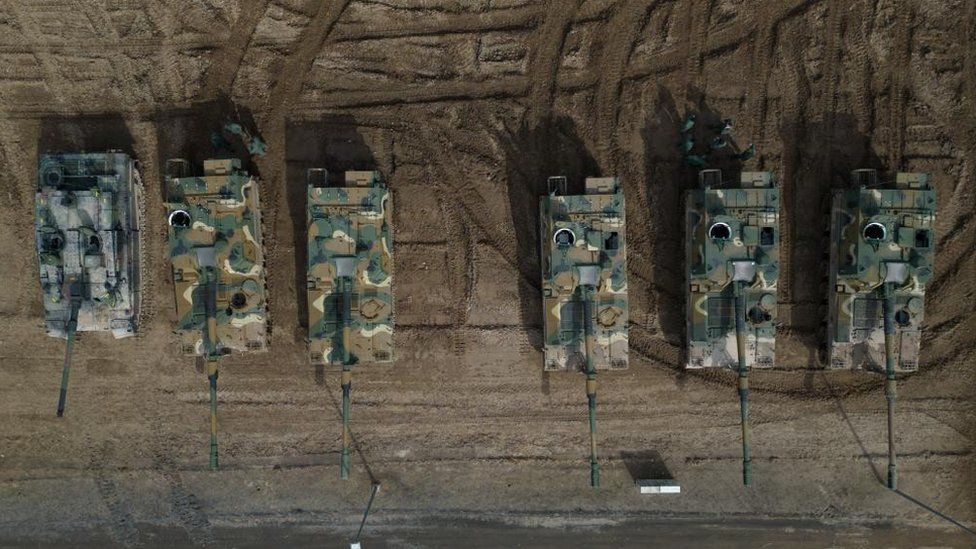
With Moscow surely aware of Seoul’s strategy of indirect supply, one South Korean official suggested it to me, it was not the Russians the government is worried about any more.
A recent poll suggested that 56% of South Koreans oppose such assistance, with 42% in support. With elections next year, the government does not want to give the opposition any metaphorical ammunition.
Though events in Ukraine may force its hand.
Softening his stance, the South Korean president suggested in April that if Ukraine were to come under a large-scale civilian attack, he would consider sending arms. It is said he also sees similarities between the Korean and Ukraine wars.
When the war in Ukraine broke out, some South Korean politicians viewed it as a faraway war. Now they argue it has come too close to home. Few doubt that what happens in Ukraine will change the world, with the impact felt here.
What the South Korean president must decide, as he heads to the Nato summit, is does he want to try to influence the outcome or merely deal with the consequences.
The atrocities witnessed by former soldier Kim Jae-kyung have left him struggling with PTSD, he says, and prone to bursts of anger. He is waiting to find out whether he will be fined for breaking the law, to take part in the war, while his passport has been frozen.
“We must do what we can to end this as soon as possible, and prevent further war crimes,” he says.
Related Topics
‘Lost screws’ to blame for airport leg mangling

Missing screws under a platform of the moving walkway were the cause of the incident at Don Mueang Airport that cost a woman a part of her left leg on June 29, an observer in the fact-finding probe said on Friday.
Assoc Prof Weerachai Phut-dhawong, a lecturer of the Chemistry Department at Kasetsart University’s Faculty of Liberal Arts and Science, said it really was an accident.
Assoc Prof Weerachai was appointed by the victim’s family to join the fact-finding committee, which also comprises the Ministry of Transport, the Engineering Institute of Thailand (EIT), the Engineers Council and the Siam Hitachi Company.
The incident occurred last Thursday around 8.40am in the South Corridor of the domestic terminal at the airport. The injured woman is being treated in an ICU room at Bumrungrad International Hospital.
Speaking after the committee meeting on Friday, Assoc Prof Wee-rachai said the mechanical failure might have been caused by missing screws under the platform.
He said normally, each panel of the moving walkway has been tightened with four screws, but the panel that the woman stepped on had only one screw. Three screws were missing, so when she stepped on the panel, it fell while the walkway was still moving and trapped her leg.
“I view this as an accident, and it has nothing to do with luggage or the missing comb of the travellator. The travellator had been used for almost 30 years, and the sensor system was functional as it stopped the walkway in 10 seconds,” he said.
However, the 10 seconds seemed to be too long as it appears to have cost the woman her leg, he said.
He said everyone on the scene, including four flight attendants and technicians rushed to help the victim at that time.
The question is how those screws went missing, he said, surmising it might be because the moving walkway was too old.
Meanwhile, Kit Kittirattana, the victim’s son, thanked Assoc Prof Weerachai in a Facebook post for proving his mother was not at fault by looking at whether the incident was caused by carelessness on her part or the fault of a certain agency.
“I urge the fact-finding committee to inspect the matter thoroughly to prevent the recurrence of such an incident,” he said.
Mr Kit also said Assoc Prof Wee-rachai proposed the committee re-enact the incident and it will hold at least two more meetings, adding that Airports of Thailand is preparing to issue a statement admitting fault and taking full responsibility for the accident.
“My mother is recovering after being treated in an ICU room for four days,” he added.
MFP predicts PM nod for Pita
Sec-gen says Senate will back their leader

The Move Forward Party (MFP) has expressed confidence its leader Pita Limjaroenrat will receive enough support from senators to become the new prime minister in the crucial vote next Thursday.
MFP secretary-general Chaithawat Tulathon on Friday brushed aside remarks by some senators that they would not vote for Mr Pita as they are concerned about his party’s policies, especially the planned amendment of the lese majeste law.
Some senators who had previously pledged to vote for him have apparently had a change of heart due to the party’s stance on changing Section 112 of the Criminal Code, or the lese majeste law. The MFP has vowed to press for an amendment.
In response, Mr Chaithawat on Friday said: “These are only the opinions of some senators, but most of the senators have not yet expressed their view on the matter.”
He also expressed confidence that the talks between the MFP and senators will deliver a positive outcome, as most senators would want to give the country an opportunity to move forward.
The 250 appointed senators are allowed by the constitution to participate in the vote, along with the 500 elected members of the House of Representatives.
Under the constitution, a PM candidate would need the support of at least half of the 750 members of both the lower and upper chambers of parliament, or 376 votes in total.
The eight coalition parties are said to have secured 312 votes in support of Mr Pita and now need 64 more votes from senators or other MPs to reach that threshold.
Asked if the MFP would back down from its bid to amend Section 112, Mr Chaithawat said that the party could allay the senators’ concerns.
He also said he would ask House Speaker Wan Muhamad Noor Matha if it would be possible for a PM candidate to outline his vision before the vote in parliament and whether members of parliament should also be allowed to quiz the candidate before making their decision.
Asked to comment on what would happen if Mr Pita fails to win in the first round of voting on July 13, Mr Chaithawat said that in that case, the MFP would nominate him again for another vote on July 19.
House Speaker Wan previously said that if Mr Pita fails to secure the votes required to become Thailand’s next prime minister in the House session set for next Thursday, then a second round of voting is likely to be held on July 19.

We may celebrate (Mr Pita’s election as PM) on the evening of July 13 – Chaithawat Tulathon, MFP secretary-general.
However, Mr Chaithawat said he believed Mr Pita would win in the first round and emerge as the new prime minister.
“We may celebrate [Mr Pita’s election as a new PM] on the evening of July 13,” Mr Chaithawat said.
“But if the voting for a new premier drags on for several rounds, then the formation of a new government would also be delayed.
“This may also affect deliberations on the 2024 fiscal budget as well as the economy. Investors will have to suspend investment as they have to assess the situation.
“The faster everything is completed, the better, so Thai politics will stabilise,” Mr Chaithawat said.
Asked if the MFP would support a PM candidate from Pheu Thai if Mr Pita fails, Mr Chaithawat insisted that Mr Pita is the only PM candidate nominated by the eight coalition parties.
The MFP’s deputy leader, Sirikanya Tansakun, on Friday claimed that the party had won over enough senators to back Mr Pita’s bid to become prime minister.
“But we must also have a contingency plan in case some senators may have a change of heart. No one knows what will happen on the day of voting,” she said.
Deputy Pheu Thai leader Phumtham Wechayachai said on Firday that the eight coalition parties would stick together and support Mr Pita to become the next prime minister.
Meanwhile, Senator Prapasri Suchantabutr insisted on Friday that she would vote for Mr Pita to be the next prime minister because his party had received the most votes in the May 14 election.


